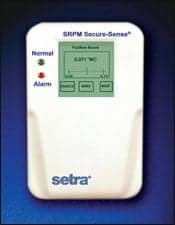CombiMatrix Molecular Diagnostics, Irvine, Calif, a subsidiary of CombiMatrix Corp, Mukilteo, Wash, is offering an updated version of its ATScan ™ test for predisposition screening for autism.
The test encompasses recent discoveries published in the journal Science that confirm the role of several new genomic imbalances in the etiology of autism spectrum disorder (ASD).
"(The company’s test) has been an indispensible tool in the evaluation of my autistic patients, and I am excited to see that they continue to lead in their innovativeness and expediency in responding to new diagnostically pertinent discoveries,” said Richard E. Frye, MD, PhD, FAAP, assistant professor of pediatrics and neurology at the University of Texas Health Science Center, at Houston-Hermann Memorial Hospital and Children’s Learning Institute.
The published discoveries and a mounting collection of independent peer-reviewed studies have revealed a substantial causative role for genomic imbalances or genome copy-number variations (CNVs) in autism.
The detection of CNVs comprises the basis of test and is developed on the company’s clinically validated array CGH platform. The test is designed to detect all of the known CNVs, including these most recent discoveries associated with ASD.
In the issue of Science, researchers studied the occurrence and recurrence of ASD in families with a high incidence of intermarriage. The data presented in the study shed light on and confirm the role of several genomic imbalances in ASD, and highlight the possible coexistence of ASD with other developmental disorders such as Angelman syndrome.
The latter finding validates the approach and design of the test, in which more than125 developmental disorders, such as Angelman syndrome and others, are simultaneously tested for with all known ASD-related CNVs. With an occurrence as high as 1 in 150 children and a likelihood of recurrence of greater than 15% in families with an already affected child, the clinical impact of ASD is likely greater than any other single developmental disorder, including disorders such as Down syndrome.
"(The company’s) dedication to continual research and development of their diagnostic test offerings, coupled with their nimbleness as a company to incorporate new clinical research findings into their designer chromosomal microarray platforms, makes them an ideal choice for evaluation of even our most complicated patients,” said Michelle N. Strecker, MS, CGC, genetic counselor at the University of California San Francisco, general and metabolic genetics clinics.
The diversified biotechnology company develops proprietary technologies, products, and services in the areas of drug development, genetic analysis, molecular diagnostics, nanotechnology research, defense, and homeland security markets.



